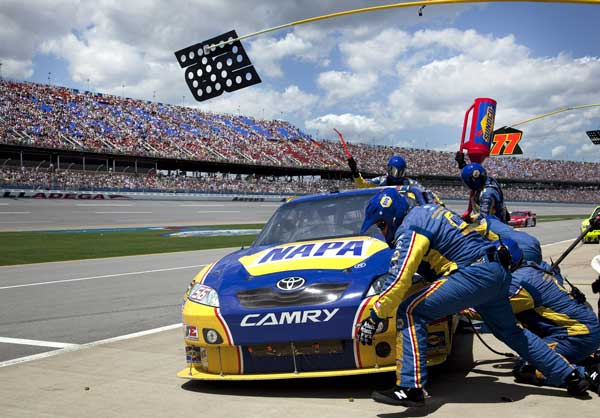Facebook Advertising and the Need for Speed
Have you ever clicked on a link whilst on a mobile device, only to be directed to a website that takes so long to load that you give up and click the back button?
Although this may be reminiscent of surfing the web in the 90s, no-one has the patience to go through the ‘dial-up experience’ again, and certainly not your customer.
Image source: Pixabay
Yet with an increasing number of users choosing to surf on mobile versus desktop, and therefore more users visiting via 3G as opposed to broadband, this experience is becoming all too common again.
How does this affect Facebook advertising?
If you use Facebook ads to drive traffic to your site, then this will affect your bottom line because as many as 40% of site visitors will abandon a site that takes 3 seconds to load. Not only is this a problem for advertisers and brands, but it also affects the user experience, and if there’s one thing that Facebook hates, then its advertisers who ruin the seamless user-experience that they try so hard to achieve.
With mobile advertising accounting for more than 80% of Facebook’s revenue, then it should come as no surprise that on Wednesday, Facebook announced a couple of changes to knock this issue on the head;
- Mobile ad prefetching (effective immediately)
- Changes to the ad auction algorithm to penalise ads that link to offending sites (being rolled out over the coming months – watch this space to see how this affects the Facebook ads landscape!)
What is prefetching?
Image source: Pixabay
Prefetching basically means that Facebook will predict whether a user is likely to click on an ad, and if so Facebook will download some of the content that the ad is linked to. This means that if a user clicks an ad, then the landing page will appear to load much quicker.
The benefit of this to advertisers will be that the reduction in mobile site load time will lead to an improved ad performance, as well as decreasing the landing page bounce rate. If you ever find that the number of ad clicks reported in Facebook is much higher than reported in Google Analytics, then this applies to you.
Issue Solved?
Nope. Facebook have introduced mobile ad prefetching as a short term solution to help improve the user experience whilst they look at encouraging brands to address the issue at the source, their websites.
Over the coming months, brands with sluggish sites can expect their mobile ad reach to really suffer, in a similar way to how advertisers who use too much text in their ad imagery. The only difference will be that in addition to considering the site speed, Facebook will also take the user’s own network connection into account for the ad auction and delivery system.
So in other words, if your main market is composed of metropolitan city-dwellers with access to super-fast 4G, then you may not be affected by this update as much as a brand that targets rural communities.
What can be done to speed up my site?
There are a number of factors that affect site load time with varying levels of difficulty to address. A very quick and easy way to diagnose what it causing your site to take ages to load is to use Google’s PageSpeed Insights Tool.
This tool will assess a number of factors that affect site load time, as well as providing useful insight as to how the actual user experience can be improved.
Image source: Pixabay
Even with very little technical web development knowledge, I would put money on the fact that the worst offending sites haven’t optimised image size, which is ironic as this is often the easiest and quickest win to boost site load time. If this applies to you then I highly recommend replacing your site images using a free online tool, run the PageSpeed Insights tool again and see the difference for yourself!
Thanks for reading
Follow my contributions to the blog to find out more about paid media, or sign up to the ThoughtShift Guest List, our monthly email, to keep up-to-date on all our blogposts, guides and events.



